Emily Charlotte
Welcome to a world of wedding ramblings.
Here you'll typically find an array of topics from fun, inspirational posts to a more thoughtful perspective on something topical.
There's no particular order or continuity to my blogging (sorry!) I just share my thoughts with you as and when they come to me. or I need to get something off my chest.
If there is anything in particular you'd like my take on then just let me know!
The Lesser Known Costs
March 9, 2016
Planning a wedding abroad can be even more daunting than planning a wedding at home, especially if language barriers are involved. If you’re not careful you could be caught out, as there are several unknown/forgotten/hidden costs of a destination wedding in Italy (and most other destinations I’m sure!) which you will almost certainly not include within your initial budget tracker, here’s 7 of the top offenders:
1) Civil Ceremony
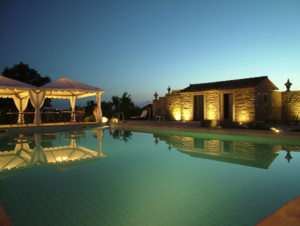
Having a legal wedding in Italy is nearly always more expensive than the symbolic alternative and costs can be hard to gauge at the start. There are two main things to consider:
1) the paperwork administration, including the processing and translation of all necessary documents
2) the Town Hall fees; unfortunately these vary massively by region from €100 to €3000 is not uncommon.
Hiring a wedding planner can help you identify the locations that suit both your budget and your vision.
2) VAT/IVA

We all know we need to pay VAT on the services we receive, however this is often excluded from quotes. In Italy, VAT varies at 10% or 22% depending on the service being provided.
You may think your photographer is costing €1,500 to then be hit with a final bill of €1,830 (nice surprise eh?!) so make sure you clarify with any suppliers whether VAT is included or excluded if it’s not clearly stated on your quote.
3) SIAE
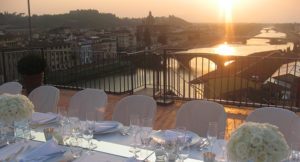
Whilst we’re on the subject of tax, SIAE is often a fee that the average bride/groom would never have heard of. SIAE is essentially a music license tax required to play music for entertainment purposes, such as your wedding DJ! Whilst associated with the DJ, it is your responsibility to pay this, not theirs.
Again, SIAE varies by region (but is usually a few hundred euros) and should be arranged a week or so before the wedding day. It is significantly easier to sort this in person than online.
Your venue may be able to help you process the SIAE payment, although it’s likely that this will be for an additional fee so again, a wedding planner can be very helpful.
4) Staff Meals
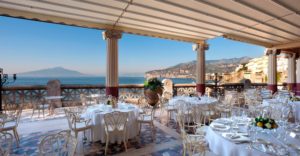
You’ll probably have a spreadsheet of costs based on your total guest numbers (got to love a budget tracker!), but have you included staff within those numbers? If not, then you should; there are some suppliers that will be with you if not all day then for several hours, such as your photographer, wedding planner and florist. It’s very important that you feed and water them too as the last thing you want is people passing out on you because they’ve been running around in the heat with nothing to eat or drink all day (how dare they steal your wedding day thunder!)
Venues are always prepared for this and offer staff meals at least 50% cheaper than your main wedding breakfast, but if you forget to include in your numbers then this could be another €100 or so which you haven’t budget for.
5) Exclusivity
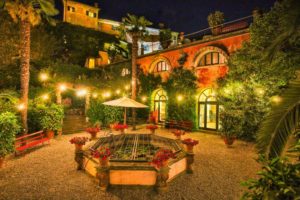
If a venue accommodates more than your guest numbers then the chances are the rest of the hotel/villa will still be open to the public; you might have no issues with this, or you may hate the thought of anyone else getting a glimpse of your wedding and want to have exclusivity of a venue (and I can’t say I blame you!)
Nearly all venues will offer this option, but exclusivity does come at a price so make sure you’re clear on whether this is something you’re going to be paying out for or not.
6) Extra Hours
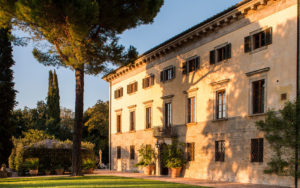
In the world of weddings, time = money. In your head you may be thinking that your DJ will play all night and your photographer will be there all day, but make sure you discuss this with suppliers and be clear on how many hours their quotes cover otherwise you’ll be left short changed whether it’s by time or by money. Usually quotes include a set number of hours, 4 being fairly common, and unfortunately additional hours then come at an extra fee.
7) Travel

Like VAT, travel can sometimes be excluded from initial quotes. If your florist has to travel 2 hours each way to get to your wedding then she’s going to charge you for it.
Travel costs can be avoided by sourcing locally where possible, and if not then just make sure you check with the supplier whether you can expect to incur any travel fees on top.
Now that you’re aware of the top forgotten costs don’t be feeling disheartened, these are all manageable one way or another so instead you should feel empowered and completely in control of your wedding finances…no hidden surprises for you!